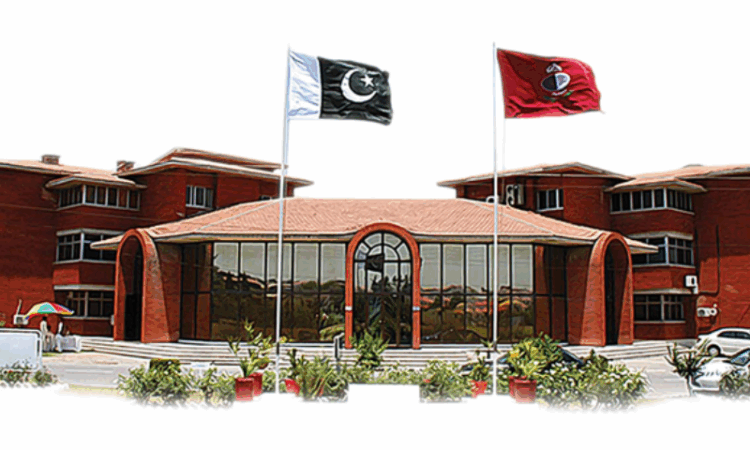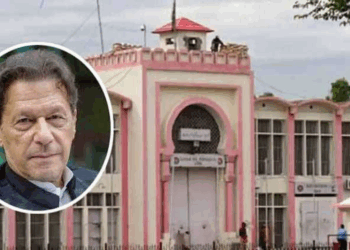Rawalpindi, May 28, 2025: Alarming rises in cases of eye cancer and childhood blindness across Pakistan have prompted a strong call to action from Al-Shifa Trust Eye Hospital. At a press conference held in Rawalpindi on Wednesday, hospital leadership urged immediate public awareness, timely medical intervention, and the launch of coordinated national health initiatives to protect children’s vision.
Prof. Dr. Tayyab Afghani, Head of Orbit, Ocular Oncology, and Oculoplastics at Al-Shifa Trust Eye Hospital, warned that eye cancer—though treatable—requires far more than surgery. “Eye cancer involves a comprehensive treatment approach including chemotherapy, radiation therapy, regular follow-ups, and long-term rehabilitation,” he explained.
To meet this need, Al-Shifa Trust established Pakistan’s first dedicated Eye Cancer Centre in Rawalpindi. The facility offers a full suite of services—surgery, chemotherapy, radiation, genetic testing, and rehabilitation—completely free of charge to underprivileged patients.
Because radiation therapy requires advanced infrastructure, Al-Shifa also sponsors patients’ treatment at Combined Military Hospital (CMH), ensuring no aspect of care is overlooked.
Dr. Afghani noted that eye cancer is often sidelined in the broader fight against cancer in Pakistan. “Most cancer centres are overwhelmed and prioritize more common cancers. At Al-Shifa, we provide comprehensive eye cancer treatment to patients of all ages and income levels.”
He revealed that the youngest patient treated was just 20 days old, and the oldest over 100. “We never turn anyone away. Our multidisciplinary team includes surgeons, anesthesiologists, oncologists, pharmacists, geneticists, and rehabilitation experts—all working together to save both life and sight.”
Poverty, Dr. Afghani emphasized, is a key driver behind preventable blindness. “Families are often forced to choose between feeding their children or saving their eyesight—and food understandably takes priority. By the time they reach us, the disease is often too advanced.”
He urged parents to look for early signs of eye cancer, such as A white glow in the eye, especially in the dark, A cloudy or whitish appearance in the pupil, unusual eye movements or squinting and increasing size of the eye
“These signs should never be ignored. Immediate screening can be life-saving,” he said.
Prof. Dr. Sumaira Altaf, Head of Pediatric Ophthalmology at Al-Shifa, explained that while most eye cancer cases are genetic, some are triggered by viruses, UV exposure, or trauma. “A family history isn’t a requirement—any child can be affected,” she stressed.
She raised serious concern over parents ignoring early symptoms. “Many children lose their eyesight because help arrives too late. Timely eye checkups are absolutely critical.”
Dr. Altaf also called for the implementation of a national school-based screening program. “Globally, countries have drastically reduced childhood blindness through mandatory school eye exams. Pakistan lacks such a program—but Al-Shifa is stepping in where it can.”
She noted that in 2024 alone, the Trust screened over 172,000 schoolchildren through its mobile eye screening camps.
Prof. Dr. Wajid Ali Khan, Chief of Medical Services, highlighted the challenge of delivering eye care to Pakistan’s population of over 250 million, half of whom are children and adolescents.
“No single hospital or organization can manage this burden alone. We need a nationwide strategy,” he said. He proposed a model where every medical college in the country adopts a district and takes responsibility for eye screening in vulnerable communities.
President of Al-Shifa Trust, Maj. Gen. (R) Rehmat Khan, made an emotional appeal for public and philanthropic support. “On one side, we have patients who cannot afford care. On the other, we have people with the means to help. Now is the time for those who can give to step up.”
He shared ambitious projections for the coming year including over 2 million patients expected to be treated and more than 120,000 eye surgeries to be performed.
“These are life-changing interventions—and we can only continue with your support,” he said.
Gen. Rehmat Khan also announced major upcoming expansions, including new hospitals in Lahore, Haveli Lakha, and Gilgit, as well as a new Eye Cancer Centre in Lahore.








